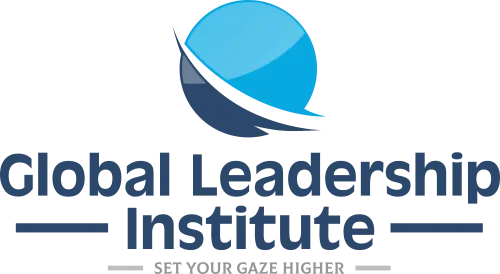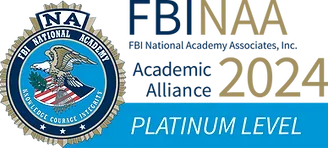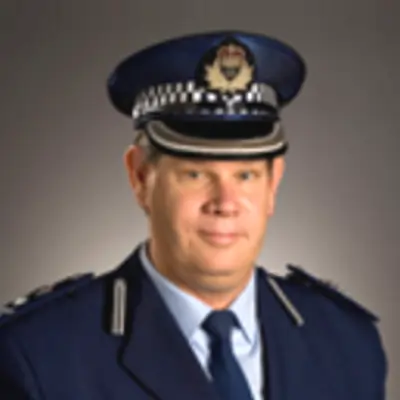POLICY
Global Leadership Institute (GLI) academic staff are to be qualified, in a relevant field, to at least one Australian Qualification Framework (AQF) qualification level higher than the unit being taught (AQF+1) or are to demonstrate equivalent professional experience. This policy outlines the minimum requirements considered by GLI when determining whether an academic staff member has the appropriate level of academic, professional, or practice-based experience and expertise to be deemed equivalent to one qualification standard level above the course of study.
Principals
GLI will adhere to the following principals:
· Unit Coordinators will always be AQF+1 to the unit they coordinate;
· academic staff will demonstrate continuing scholarship that informs their teaching;
· academic staff will normally have a qualification at least one Australian Qualification Framework (AQF) qualification level higher than the course being taught;
· academic staff may be appointed to teach, even though they do not hold qualifications at least one AQF level higher than the unit being taught, providing they can demonstrate a satisfactory combination of academic knowledge and current professional experience relevant to the unit being taught;
· Program Directors are responsible for assessing and approving academic staff qualifications and their equivalent professional experience based on demonstrable expertise;
· in assessing professional equivalence to teach in a course, the following should be considered: (a) teaching experience, scholarship activity and range of professional experience; (b) minimum requirement for academic qualifications; and (c) any specific criteria for assessing equivalence at each AQF level.
· the Institute will ensure fair and transparent processes and decisions will be communicated in writing to the applicant in a timely manner;
· where academic staff are approved for professional equivalence, the relevant Program Director will appoint a supervisor to oversee the teaching and moderation of a sample of graded assessments to ensure teaching and assessment practices are at the expected academic standard;
· the Unit Coordinator and Program Director will be available to provide advice and feedback during delivery of the unit.
· a combination of professional development and academic oversight of teaching will ensure that the professional equivalence lecturer successfully transitions to their academic role;
· in the case of nested qualifications, academic staff are expected to hold a qualification one AQF level above the highest qualification in the nested suite.
SCOPE
All academic staff
Scope
All academic staff
Key Stakeholder
All staff and students
Proceedure
The following table will be adhered to for academic equivalence. Annual auditing will be undertaken to capture currency and equivalence of all academic staff qualifications. The professional experience will be at least three years’ duration and will include evidence within the last five years.
Academic Staff Qualifications to Teach at AQF Level 8 and 9
| To Teach This Qualification |
Alternative Minimum Qualifications |
|
|
Level 8 – Graduate Certificate, Graduate Diploma including Micro Credential Courses
|
A completed level 9 qualification (Masters’ Degree) and current scholarship in the field of teaching as per the evidence list.
OR
A completed Level 8 (Graduate Certificate or Diploma) qualification with current (membership) registration to practice within the relevant profession (if applicable) plus five years of teaching, research and/or current professional experience as per the evidence list. |
|
|
Level 9 – Master’s Degree (Coursework, Research)
|
A level 10 qualification (Doctorate) and experience in the field of teaching and current scholarship as per the evidence list.
OR
a Level 9 (Masters Research, Coursework)) qualification with current (membership) registration to practice within the relevant profession (if applicable) plus five years teaching, research or professional at least 5 years professional experience within the last 10 years as per the evidence list.
Enrolment in a level 10 doctoral course plus five years relevant teaching and five years professional experience. |
|
Types of evidence
In determining experience relative to qualifications, regard is had to:
· teaching experience;
· experience in research;
· experience outside tertiary education;
· creative achievement;
· professional contributions and/or technical achievement.
Evidence may include skills and experience including, but not limited to, the following within the last 10 years:
· previous teaching experience in the field of expertise at a recognised Australian higher education institute or international higher education institute of equivalent standard;
· research and/or creative works and/or projects at an advanced level;
· peer reviewed research publications, books or reports and conference/seminar presentations in the discipline area;
· relevant industry experience in a role that requires higher order judgement and the provision of expert advice, or a role at a senior level;
· leadership or management of research acknowledged by peers;
· relevant workplace or practice-based experiences;
· recognised professional standing of independent or professional/creative work;
· peer reviews of teaching or teaching materials relevant to the AQF level of the program to be taught and/or student evaluations of teaching; and/or supervisor evaluation;
· supervision of Higher Degree Research students to award;
· testimonials, awards or other recognition for leadership or expertise in the field;
· contributions to the discipline through participation in advisory boards;
· managing significant projects relevant to the discipline area;
· leadership roles in local, state, and national advisory and governing bodies and community and professional organisations.
Record keeping
GLI will maintain suitable records that include details of how each individual staff member meets ‘equivalence’ and satisfied the minimum requirements set out by these procedures; and will be maintained.
Professional equivalence process
Staff seeking equivalence must complete the application form. Completed applications are to be submitted to the relevant Program Director/ Academic Dean. The Academic Dean will review the application and either ‘recommend’ or ‘not recommend’ the application and forward it onto Academic Board. The committee will review on timely basis and consider applications. The application and accompanying documentation will be forwarded to the Human Resources Manager and retained on staff files. Equivalence, where approved, will be electronically recorded for regulatory, reporting and work planning purposes.
Professional equivalence supervision
The appointed supervisor will oversee one semester of teaching and assessment grading to ensure teaching and assessment practices are at the expected academic standard. The supervisor will also conduct a peer review of teaching at least once during that semester. In the case where academic staff approved through professional equivalence are engaged on a continuing basis to teach specialised components of a unit, they will remain under the supervised by staff who do meet the requirements (see Standard 3.2.4). Reports on academic staff employed based on professional equivalence will be tabled to the Academic Board for review.
Academic staff approved through professional equivalence are required to complete and report on specific scholarship activities as part of the Annual Performance Appraisal process.





